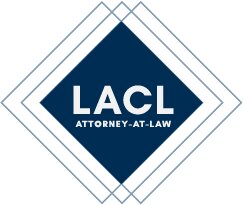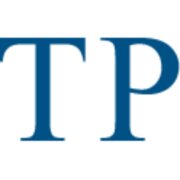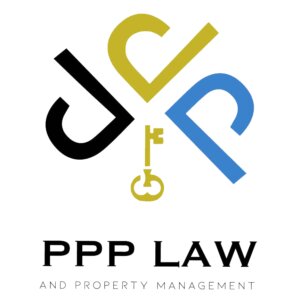Best Government Relations & Lobbying Lawyers in Huai Khwang
Share your needs with us, get contacted by law firms.
Free. Takes 2 min.
List of the best lawyers in Huai Khwang, Thailand
About Government Relations & Lobbying Law in Huai Khwang, Thailand
Government relations and lobbying play an important role in shaping policy, development, and regulation in Thailand, including the Huai Khwang district of Bangkok. In Thailand, lobbying involves advocacy aimed at influencing government decisions or legislation, whether by individuals, organizations, or businesses. Although lobbying activities take place across the country, including urban districts like Huai Khwang, Thailand does not have a comprehensive lobbying law like some Western countries. Instead, lobbying is regulated under broader laws governing public participation, anti-corruption measures, and transparency requirements. Understanding these frameworks is essential for anyone who is involved in or affected by government decision-making in Huai Khwang.
Why You May Need a Lawyer
Legal guidance is highly valuable in government relations and lobbying due to the complex intersection of administrative regulations, anti-corruption laws, and evolving political practices. Common situations where legal expertise is needed include:
- Seeking business permits or concessions from government agencies in Huai Khwang
- Engaging local officials or policymakers to advocate for regulatory changes or public projects
- Participating in public procurement or bidding processes
- Ensuring compliance with laws on gifts, donations, and financial disclosures
- Responding to investigations involving alleged conflicts of interest or undue influence
- Assisting foreign entities navigating local government procedures and communications
- Drafting or reviewing contracts with local authorities
- Representing interests in public hearings or consultations
A lawyer with experience in government relations and lobbying ensures you navigate these scenarios legally and ethically, reducing the risk of legal disputes or criminal liability.
Local Laws Overview
Huai Khwang, as a district within Bangkok, is subject to Thai national laws as well as certain Bangkok Metropolitan Administration regulations. While there is no centralized lobbying statute, these laws most often come into play:
- Anti-Corruption Act (BE 2561) - Prohibits bribery, improper payments to officials, and conflicts of interest. All interactions with government officials are scrutinized under this law.
- Official Information Act (BE 2540) - Grants public access to government records but sets limits to protect national security and privacy.
- Public Procurement and Supplies Administration Act (BE 2560) - Governs transparency and fairness in public procurement processes in Huai Khwang and throughout Thailand.
- Bangkok Metropolitan Administration Regulations - Includes codes of conduct for district officials, requirements for participating in local meetings, and specific procedures for engagement between the public and authorities.
- Foreign Business Act (BE 2542) - Influences the manner in which foreign individuals or entities can interact with government bodies, especially regarding business licenses and land use.
Failure to comply with these rules can result in fines, reputational harm, or even criminal charges, making legal knowledge and guidance critical.
Frequently Asked Questions
What activities are considered lobbying in Huai Khwang, Thailand?
Lobbying generally refers to attempts to influence government decisions or actions, such as advocating for policy changes, requesting permits, or providing information to officials. While the term is not narrowly defined by law in Thailand, actions that involve advocating for preferential treatment or changes in government policy usually qualify.
Is lobbying legal in Huai Khwang?
Lobbying is legal in Thailand, including Huai Khwang, but must comply with all anti-corruption and transparency laws. The law prohibits bribery, improper inducements, and conflicts of interest.
Do I need to register as a lobbyist in Thailand?
Currently, Thailand does not require lobbyists to register. However, current political discussions may lead to future regulations. Always keep updated as the regulatory landscape can change.
What are the risks of engaging in lobbying without legal advice?
Risks include inadvertent violation of anti-corruption laws, being investigated for bribery or improper influence, and not following proper procurement or public consultation procedures. These risks may lead to fines, criminal charges, or damaged reputations.
How can I ensure my lobbying activities comply with Thai law?
Consult a qualified lawyer to review your planned interactions, keep thorough documentation of correspondences, avoid any unrecorded or unofficial payments, and always respect the boundaries set by laws and official codes of conduct.
Can foreign companies or individuals lobby local governments in Huai Khwang?
Foreign entities may engage in lobbying and government relations, provided they comply with the Foreign Business Act and do not violate any anti-corruption or local administrative laws. Special restrictions may exist based on the sector.
What should I do if accused of impropriety in my lobbying efforts?
Seek immediate legal counsel, cooperate with any official investigations, and gather all documentation of your interactions with government representatives to demonstrate compliance.
Are there restrictions on gifts or benefits to officials?
Yes, the Anti-Corruption Act places strict limits on gifts or benefits to officials. Anything of significant value is likely to be scrutinized and could lead to allegations of bribery.
How do I participate in a public consultation or hearing in Huai Khwang?
Check with the Huai Khwang District Office or the respective government agency hosting the consultation for procedures. Usually, you can register in advance or on-site depending on the event, and some hearings allow written submissions.
Where can I find more official information about laws affecting lobbying?
Visit local government offices, review websites of official agencies, or ask a local attorney for guidance on accessing legal information relevant to your lobbying activities.
Additional Resources
Here are useful organizations and resources for government relations and lobbying in Huai Khwang, Thailand:
- Office of the National Anti-Corruption Commission (NACC) - Provides guidance on anti-corruption regulations and whistleblower protection.
- Huai Khwang District Office - The primary point of contact for district-level administration, permits, and public participation matters.
- Bangkok Metropolitan Administration (BMA) Legal Affairs Division - Advises on rules affecting public interactions and governance in Bangkok districts.
- Thai Chamber of Commerce - Offers resources for businesses engaging in advocacy with government agencies.
- Local legal aid centers - May provide free or low-cost initial advice on navigating administrative processes.
Next Steps
If you believe you require legal assistance in government relations or lobbying in Huai Khwang:
- Document all your intended or past interactions with government representatives for reference.
- Identify the specific regulations or issues relevant to your situation, such as permits, tenders, or advocacy.
- Consult a law firm or lawyer who specializes in administrative and government relations law in Bangkok or Huai Khwang. Prepare your documents and questions in advance.
- Follow legal advice carefully, and ensure your actions comply with both national and local regulations.
- Stay updated on regulatory changes, as the Thai government periodically updates laws governing lobbying and public participation.
Acting early and seeking proper legal guidance is the best way to achieve your objectives while avoiding unintended legal issues in Huai Khwang's government landscape.
Lawzana helps you find the best lawyers and law firms in Huai Khwang through a curated and pre-screened list of qualified legal professionals. Our platform offers rankings and detailed profiles of attorneys and law firms, allowing you to compare based on practice areas, including Government Relations & Lobbying, experience, and client feedback.
Each profile includes a description of the firm's areas of practice, client reviews, team members and partners, year of establishment, spoken languages, office locations, contact information, social media presence, and any published articles or resources. Most firms on our platform speak English and are experienced in both local and international legal matters.
Get a quote from top-rated law firms in Huai Khwang, Thailand — quickly, securely, and without unnecessary hassle.
Disclaimer:
The information provided on this page is for general informational purposes only and does not constitute legal advice. While we strive to ensure the accuracy and relevance of the content, legal information may change over time, and interpretations of the law can vary. You should always consult with a qualified legal professional for advice specific to your situation.
We disclaim all liability for actions taken or not taken based on the content of this page. If you believe any information is incorrect or outdated, please contact us, and we will review and update it where appropriate.













